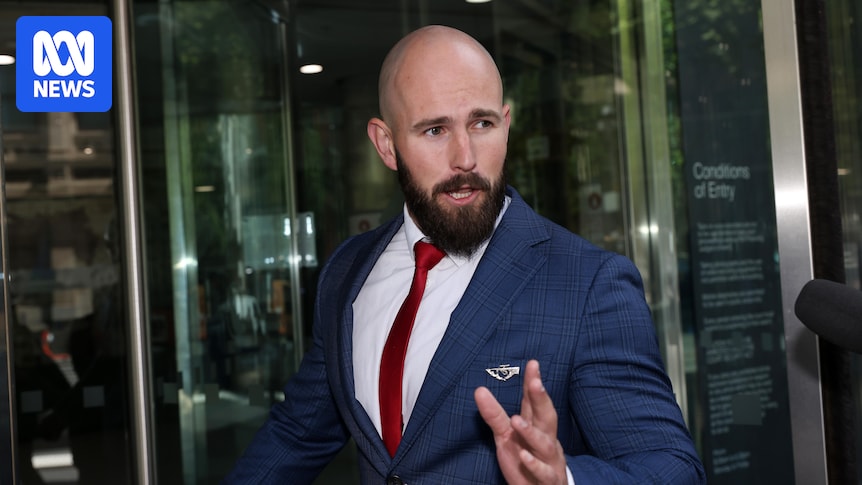
Neo-Nazi leader Thomas Sewell has been sentenced to 200 hours of community service after being found guilty of intimidating a Victoria Police officer and his partner. Sewell, 32, is currently in custody following a denial of bail last week and will be required to complete the community service upon his release.
Magistrate Michelle Hodgson delivered the verdict, citing Sewell’s threats to release personal information about the officer and his partner during appearances on two podcast episodes last year.
“Police officers are front-line enforcers of the law. If they are intimidated from carrying out their duties because of threats of exposure, humiliation or retaliation, the justice system itself is undermined,” she stated. “A threat to dox can expose family, friends, and home life. It uses technology to make private information available to a potentially hostile audience.”
Background of the Case
The case stems from an incident in October last year when masked members of Sewell’s National Socialist Network clashed with police. Following the scuffle, Sewell appeared on a podcast hosted by fellow Neo-Nazis Joel Davis and Jacob Hersant. During the podcast, Sewell discussed an officer who allegedly attempted to remove masks from his group members.
In the podcast, Sewell remarked,
“This guy, he’s got all his social media, like his family, like his wedding photos. We’ve got it all downloaded, we’ve got it all saved,” he said. “Just working out how to legally post it all in a way that’s just maybe for comic purposes.”
Sewell’s comments prompted police to raid his home and issue personal safety intervention orders to protect the officer and his partner.
Legal Proceedings and Sentencing
During the trial, Sewell represented himself and did not directly name the officer or his partner in the live streams. However, the officer’s wife testified that the comments left her feeling “intimidated and threatened.”
“I felt like we were in danger,” she said.
Magistrate Hodgson emphasized Sewell’s awareness of the power and harm in threatening to release personal information.
“Mr Sewell has sought to weaponize personal information, personal insult, and public exposure to instill fear. He used the speech as intimidation rather than as a political communication,” she noted.
Sewell was found guilty of intimidating the officer and his partner, as well as breaching the intervention orders. Although the maximum penalty for these offenses at the Magistrates’ Court level is two years’ imprisonment, prosecutors advocated for jail time while Sewell suggested a fine.
Magistrate Hodgson dismissed charges alleging that Sewell instructed the podcasters to post the episodes online and that he knowingly broke the law by refusing to provide the pin code to a digital device seized by police. On Friday, Sewell expressed remorse for mentioning the officer’s partner in the live streams.
Historical Context and Implications
Sewell’s legal troubles are not new. He has previously been convicted of assaulting a security guard at Channel Nine’s headquarters and participating in an attack on a group of hikers, resulting in more than six months in remand. His recent denial of bail relates to separate charges from a melee at an Indigenous camp in Melbourne, where police have charged eight individuals over the brawl at Camp Sovereignty in Melbourne’s CBD.
The sentencing of Sewell highlights ongoing concerns about extremist groups using digital platforms to intimidate and threaten public officials. As communities grapple with the rise of such groups, legal systems face the challenge of addressing threats that leverage technology to amplify fear and division.
Meanwhile, another of Sewell’s supporters, a 20-year-old, was arrested outside the Melbourne Magistrates’ Court on Friday for his alleged involvement in the Camp Sovereignty incident. This development underscores the broader implications of Sewell’s actions and the potential for further legal consequences for his associates.
As Sewell prepares to serve his community service sentence, authorities and communities alike remain vigilant against the potential for similar threats and actions from extremist factions. The case serves as a reminder of the delicate balance between freedom of speech and the protection of individuals from intimidation and harm.






